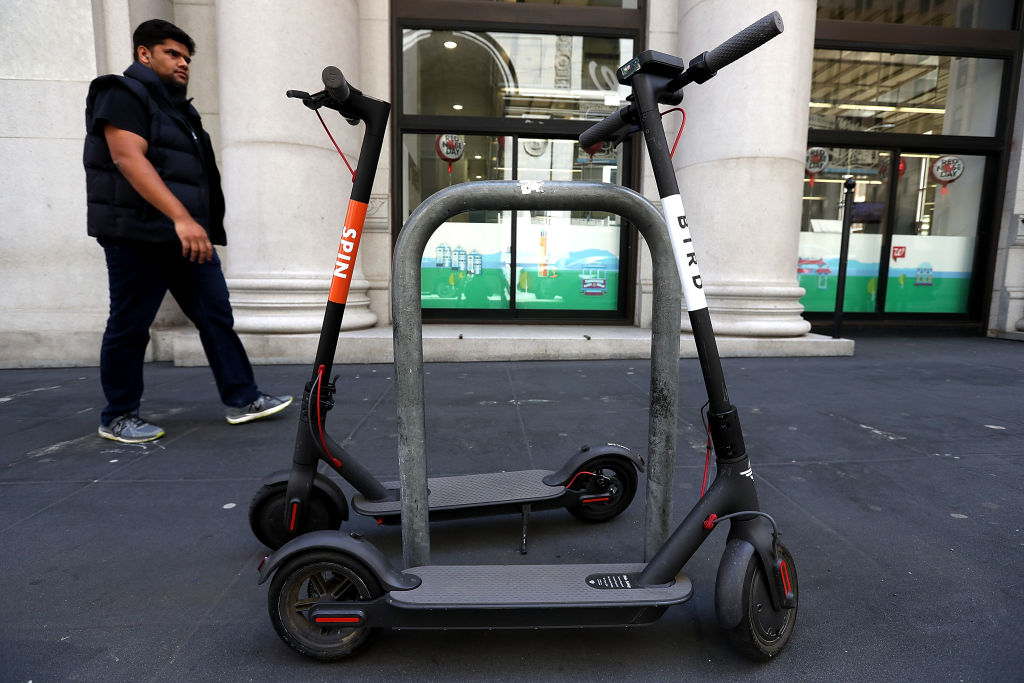Gone are the days when tech companies can deploy their services in cities without any regard for rules and regulations. Before the rise of electric scooters, cities had already become hip to tech’s status quo (thanks to the likes of Uber and Lyft) and were ready to regulate. We explored some of this in “The uncertain future of shared scooters,” but since then, new challenges have emerged for scooter startups.
And for scooter startups, city regulations can make or break their businesses across nearly every aspect of operations, especially two major ones: ridership growth and ability to attract investor dollars. From issuing permits to determining how many scooters any one company can operate at any one time to enforcing low-income plans and impacting product roadmaps, the ball is really in the city’s court.
In San Francisco, for example, the Municipal Transportation Agency recently opened up its application process for service providers to deploy their vehicles as part of a more permanent program in the city. As part of it, the city has put some new requirements in place — all of which will result in companies putting more money and resources into their own vehicles and services.
The SFMTA will now require companies to integrate locking mechanisms and pilot adaptive scooters to ensure disabled people are not left out. That means, on top of continuing to create and deploy vehicles with poor unit economics, companies may need to develop an entirely separate vehicle. And that adaptive scooter must be available for deployment within the first three months of the permit.
“The SFMTA will consider applicants’ Adaptive Scooter Pilot proposals in the context of their broader application, especially their operations plan, to ensure that adaptive devices are equitably distributed,” the SFMTA said in a Q&A session regarding the permitting process. “The adaptive bike share program in Golden Gate Park is one way applicants might address service to people with disabilities; applicants are encouraged to focus their proposals based on needs identified by people with disabilities and advocacy groups that represent them.”
I caught up with Skip, one of the two companies currently allowed to operate in San Francisco, about the permitting process. For starters, Skip is in the process of applying for a permit and is looking at ways to ensure its scooter offerings are available to disabled people.
“Our new vehicle already feels more comfortable for a lot of people,” Skip CEO Sanjay Dastoor previously told TechCrunch. “We’re looking at other things but this is definitely a step forward.”
Additionally, companies will need to more actively promote (read: spend money on advertising) low-income plans. In short, that means spending more to earn less. But, to be clear, it is important that companies do this and ensure their services are equally accessible to everyone — not just the tech elite. Despite previous mandates to serve underserved areas, a mid-way pilot report in San Francisco found that 63% of riders are white and 68% of riders have household incomes of more than $100,000.
The SFMTA says it will also favor companies that use full-time employees versus independent contractors because they are more “reliable…specifically with respect to safety.”
Widespread regulations

It’s not just municipal regulations. As AB-5 makes its way through the California state legislature, it’s worth clarifying why tech companies generally prefer 1099 independent contractors. AB-5 seeks to codify the ruling in Dynamex Operations West, Inc. v. Superior Court of Los Angeles.
In that case, the court decided Dynamex wrongfully classified its workers as independent contractors. AB-5, which has already passed in the California State Assembly, would ensure gig economy workers are entitled to minimum wage, workers’ compensation and other benefits.
For companies, that, of course, means more money out of their pockets and into the (rightful) hands of its workers. In San Francisco, scooter providers will also have to pay a fee for the city to install additional bike racks. The goal is to install 1,000-1,200 per year.
Over on the East Coast, the ball was in the District of Columbia’s court. In June, after a battery on one of Skip’s scooters caught fire followed by improperly disposed of batteries creating a single-alarm fire in one of its warehouses, the District Department of Transportation forced the company to temporarily suspend operations.
Skip, however, is not the only micromobility entity that has experienced battery fires. About one week before that, Lyft pulled its e-bikes from its fleet of shared bicycles in San Francisco and the surrounding Bay Area in light of a couple of its batteries catching on fire.
And battery fires do not only affect electric bikes and scooters. You may remember the year of the exploding hoverboards, as well as exploding smartphones and laptops. What all of those have in common are lithium-ion batteries, which are very commonly used for portable electronics and now, personal electric vehicles. The downside to these types of batteries is potential overheating, which can lead to a failure mode called “thermal runaway” and result in a battery fire.
Other potential issues that can lead to battery failure are bad design and the mere fact that scooters can be banged around by users. In the case of Skip, the issue seemed to fall on the latter.
“The investigation found the main cause to be physical damage, but it was not able to determine whether the damage was intentional or unintentional,” a Skip spokesperson told TechCrunch at the time.
Since then, Skip has started testing a new scooter, built from the ground-up in-house, that features a totally enclosed and protected battery. That design should theoretically be able to prevent the battery from damage.
And then there’s Austin, of course, which has become a hotspot for electric scooters — to the degree that the Centers for Disease Control and Prevention looked into scooter-related injuries there. Its study found that for every 100,000 trips, there are about 20 rider injuries.
But that’s not to say that all the other forms of transportation available to us are totally safe. Even though bicycle trips account for just 1% of all trips in the U.S., bicyclists face a higher risk of crash-related injury and deaths than people in cars, according to the CDC.
These injuries, of course, have much to do with the fact that scooters and bicycles are significantly smaller and weaker than the cars, buses and trains with which these micromobility vehicles are sharing the roads. The best way to prevent micromobility-related injuries is to get rid of cars, but until then, these companies will continue to face plenty of scrutiny when it comes to rider safety.
Still, given the amount of scrutiny all of these companies are under, coupled with their reliance on approval from cities, electric scooter companies need to make sure their respective safety procedures are buttoned up if they want to thrive in this space.































Comment